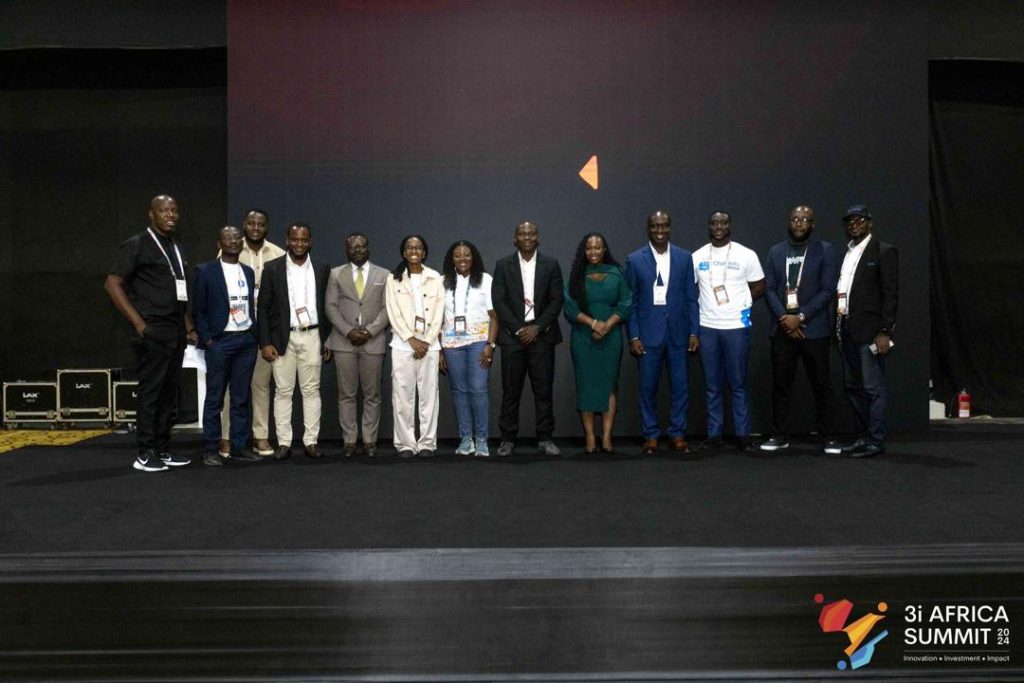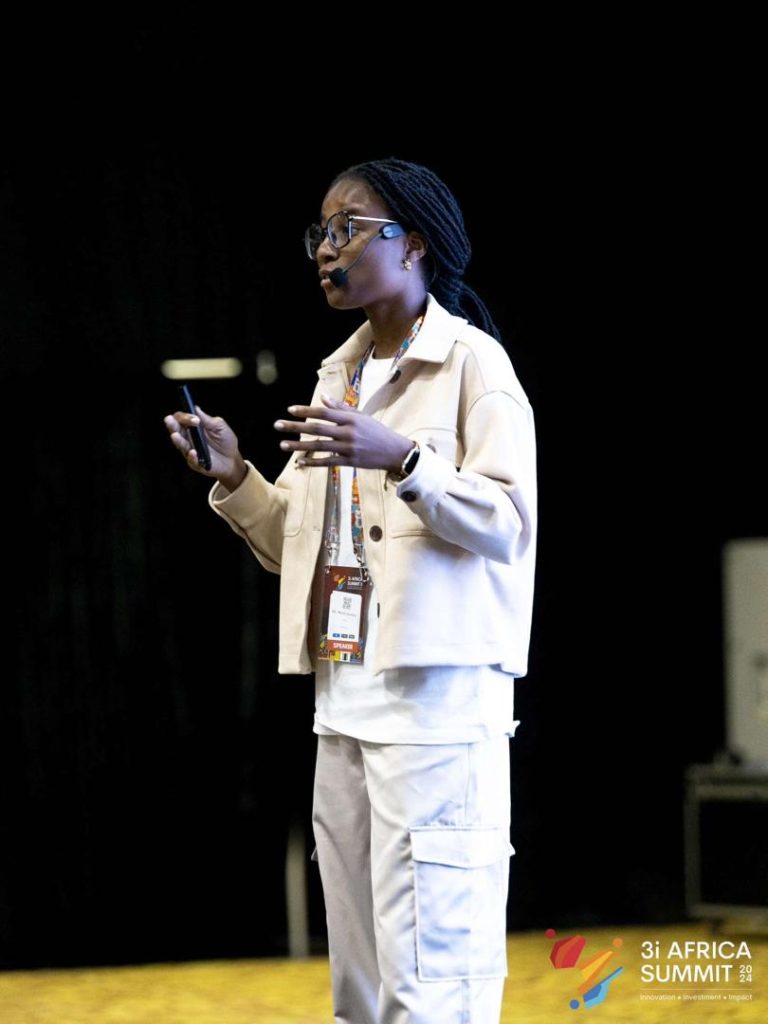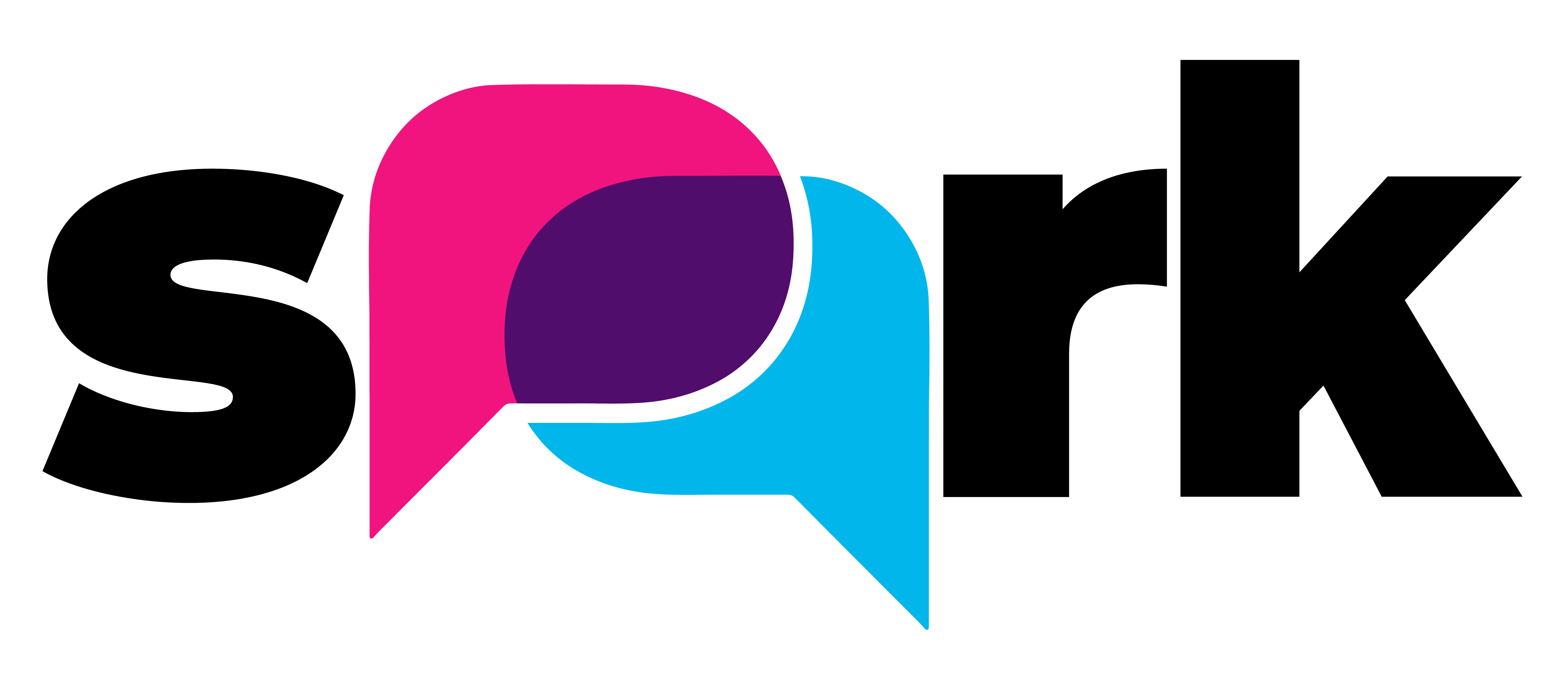From Startup Vision to Pitchfest Victory.
The Remarkable Journey of Wendy Quarshie

Spark: Tell us about yourself? Where did you grow up? What type of family did you grow up in?
Wendy: I grew up in the beautiful town of Akropong in the Eastern Region, living with my grandparents during those early years. After finishing grade six, I moved to the bustling city of Accra to live with my mother. There, I attended Star Avenue at Kokomlemle before heading off to Wesley Girls for high school. After high school, I continued my journey at the University of Ghana, where I studied Actuarial Science for my bachelor’s degree. Once I completed that, I took an exciting leap and moved to IE University in Madrid to pursue my master’s degree in Computer science and business technology.
Spark: Was this always your dream growing up or you stumbled on it??
Wendy: As a kid, I had big dreams and wild ambitions. When it was time for high school, I was torn between becoming a medical doctor or an engineer. After high school, I got accepted into KNUST for engineering, and a school abroad even offered me a spot in their medical program. But my dad insisted I go to the University of Ghana to study actuarial science, and looking back, I don’t regret it one bit. While at the University of Ghana, I discovered I could add a minor in computer science to my studies, so I jumped at the chance. I was told no one had done it before, but I was determined to make it happen. My interest in computer science really took off after I attended a course in the department. The lecturer, Michael Soli, was young, tech-savvy, and had all the latest gadgets. He told us, “If you take the course I’m about to teach seriously, you’ll be rich,” and that was all the motivation I needed. He became one of my biggest inspirations for pursuing computer
Spark: Do you remember the exact moment you decided to create Chempe?
Wendy: Yes, I do. During breaks from class in Madrid, my friends and I would often go out for lunch. After eating, we’d split the bill, which usually took a while and sometimes made us late for our next class. One day, we went to a restaurant where, after our meal, the waiter brought us a QR code to scan. It took us to a web service that allowed us to pay the bill quickly, with the option to split the costs individually. The whole process took just 10 to 15 seconds, compared to the usual 5-10 minutes. I was really impressed with the technology and thought to myself, “I could bring something like this to Ghana.
Spark: Tell me about Chempe?
Wendy: It’s a web service designed to boost restaurant efficiency and enhance the dining experience. Instead of the traditional process, customers can interact directly with the kitchen. When you walk into a restaurant, you simply scan a QR code to place your order. After finishing your meal, you use the same QR code to view your bill, make payment, and even split the bill if you’re with a group. The entire process is quick and seamless, taking just seconds.
Spark: Describe your ideal user or customer. What problem are you solving for them, and how are you making their lives better?
Wendy: Our target customers are restaurants looking to boost efficiency, streamline management, reduce theft, and enhance customer satisfaction. At the same time, the diners themselves are also our customers, as our goal is to elevate their dining experience and ensure their happiness. We achieve this by cutting down on wait times, whether it’s the time spent placing orders or waiting for the bill after a meal.

Spark: How does your product or service stand out in a crowded tech landscape? What’s your competitive edge?
Wendy: We’ve discovered a unique niche where we blend restaurant tech with fintech, making us more than just another service in either category. This combination sets us apart in an ideal way. Plus, we have the first mover advantage here in Ghana. In other countries like Singapore they have Qlub, Square in the USA, Sunday App in the UK among others.
Spark: Can you share a bit about your team? What qualities were you looking for when bringing people on board?
Wendy: I started the company with two other people who shared my vision and didn’t require micromanaging. The first was Joshua Oduro, a software engineer I’d worked with on multiple projects before. He’s the main technical expert and was instrumental in building the startup from the ground up. The second is Shalom Akinboboye, who handles the product side of things. She’s a product manager at Meta and has been a mentor to me for a long time. We worked together at Airtel Tigo, and when I came up with the idea for the startup, she was one of the first people I called. She guided me through the entire process, from refining ideas to assessing market viability. Shalom now manages all aspects of marketing for the company.
Spark: How has your background or personal experiences influenced the way you approach building your company?
Wendy: Chempe is the second company I’ve built; the first one never took off, but that experience has been invaluable. Growing up, I always wanted to start my own business right out of school, but Shalom advised me to get some work experience first, and I’m glad I listened. After graduation, I worked for a startup that gave me insight into how products are developed, and then at another company, I learned how to manage and structure a business as it grows. I realized that my first attempt at building a company didn’t fail because of the product—it failed because I didn’t yet know how to run a business. Working for these companies taught me important lessons about what to do, what to avoid, and what to watch out for in the future.
Spark: As a startup founder, you wear many hats. Which role do you find most challenging, and how do you handle it?
Wendy: My biggest challenge right now is balancing my regular 9-to-5 job with running this company. I also find the business side of things difficult, which is why I’m so grateful to have Shalom by my side to help with that. Another challenge is that much of what you read or study doesn’t always apply to real-world situations. Sometimes, you have to unlearn and relearn because what’s happening on the ground is entirely different from what the market or experts suggest. You often get conflicting advice, but ultimately, you have to make decisions that are best for your current situation
Spark: What role do you see emerging technologies like Al or blockchain playing in the future of your business?
Wendy: The technologies I’m excited to implement are data analytics and machine learning. By leveraging these tools, we can gather valuable insights on peak and low seasons or hours, helping restaurants optimize their operations. For instance, data analytics can provide real-time information on customer trends, allowing businesses to anticipate busy periods and staff accordingly. Machine learning can take this a step further by tracking inventory levels and automatically sending out orders to suppliers when stock is running low, ensuring that the restaurant never runs out of essential items. Together, these technologies can significantly improve efficiency, reduce waste, and enhance the overall customer experience.
Spark: What are some key trends in tech that you’re keeping an eye on, and how do they influence your strategy?
Wendy: I’m really intrigued by the new payment methods being developed these days and am keeping a close eye on them. For example, I’ve heard that MTN is introducing a feature that lets you link your MTN Mobile Money to your Mastercard for payments, which I think could be a game-changer. I’m also watching the evolution of cloud-based solutions. Many businesses are hesitant to move their operations to the cloud due to concerns about the availability and affordability of quality internet service in the country. I’m curious to see how the National Communications Authority will address these challenges.
Spark: Funding is a crucial aspect of scaling. How have you approached fundraising, and what advice would you give to others looking to secure investment?
Wendy: I was actively seeking funding, and at IE University, they have a lab that holds demonstration days periodically. My mentor for the project advised me that it’s easier to raise funds from investors who are familiar with the market you’re targeting. Since I was focusing on the Ghanaian market, with plans to expand into the broader African space, my initial approach of reaching out to European investors might not have been ideal. These investors, being from more advanced markets, might not fully grasp the significance of the problem I was addressing in my region. What seems like a pressing issue here might not even register as a concern in their space. My mentor also recommended bootstrapping for a while before seeking external funding, which was valuable advice.
Spark: What does success look like for you and your startup in the next 5 years?
Wendy: I want the name Chempe to resonate with everybody in West Africa.
Spark: Starting a business is demanding. How do you balance the intense workload with maintaining your mental and physical health?
Wendy: For me, it’s crucial to recognize when I’ve hit my limit and need to take a break. I work until I reach that point of exhaustion, and then I step away—sometimes taking a vacation where I completely disconnect from work. During that time, I focus on recharging so that I can return refreshed and ready to continue. It’s important not to wait until you’re sick to start taking care of yourself, as recovery will take much longer than if you had just taken a break in the first place. Often, after a good rest, I come back with fresh ideas. I also make it a point to prioritize tasks and delegate responsibilities because I trust the people I work with. I don’t try to carry the entire load myself.

Spark: You won the Bank of Ghana 3i summit, tell us about the experience.
Wendy: The Bank of Ghana, Development Bank Ghana, and Elevandy Group organized the 3i Summit, bringing together policymakers, decision-makers, banks, fintechs, and investors to promote innovation. This three-day event culminated in a Pitchfest on the final day. Companies from across Africa were invited to apply, and the top 10 were selected to pitch their businesses live to an audience of potential investors. By the grace of God, we made it into the top 10 and went on to win the Pitchfest. The grand prize was $10,000.
Spark: What encouraged you to compete?
Wendy: I attended a venture capital event where I pitched my idea to several people. One of them was impressed by the innovation and told me it would be a great fit for a Pitchfest that the Bank of Ghana was organizing. He promised to share the details when the time came, and true to his word, he did. Encouraged by his support, I applied—and eventually ended up winning the Pitchfest.
Spark: Can you share some key moments from the summit that influenced your approach to technology and innovation?
Wendy: There was a session where other founders shared their stories and highlighted key moments from their entrepreneurial journeys. Listening to their experiences offered me a fresh perspective on the diverse paths people take in building their businesses. It was eye-opening to hear about the different strategies they tried, some that led to success and others that didn’t work out. These stories provided valuable insights and guidance, helping me anticipate potential challenges and better prepare for the hurdles I might face along my own journey. It was a powerful reminder that success often comes with a lot of trial and error, and that learning from others’ experiences can be incredibly beneficial.
Spark: How do you plan to leverage the network and connections you built moving forward?
Wendy: I was truly amazed by the caliber of people I met. Many of them were individuals I might never have crossed paths with and they were incredibly open to connecting with me. I was introduced to key players in both the restaurant and financial sectors, which led to some exciting opportunities. Additionally, I connected with several companies and influential individuals who can provide support when we’re ready to re-enter the fundraising market. These connections are also proving invaluable in helping us navigate the stage we’re currently in, offering advice, resources, and potential collaborations that are crucial for our growth.
Spark: What advice would you give to aspiring tech entrepreneurs who are looking to compete in similar summits?
Wendy: It’s essential to thoroughly understand your product and clearly articulate the problem it solves. When presenting your idea, focus on making the problem relatable to your audience, if they can connect with the problem on a personal or professional level, they’re more likely to see the value in your solution. Avoid getting too caught up in technical jargon; instead, speak in terms that resonate with people’s real-world experiences. The key is to communicate in a way that’s accessible and meaningful, allowing your audience to easily grasp why your solution matters and how it can make a difference in their lives or businesses.
Follow Wendy on social media to stay up to date with her business and growth










